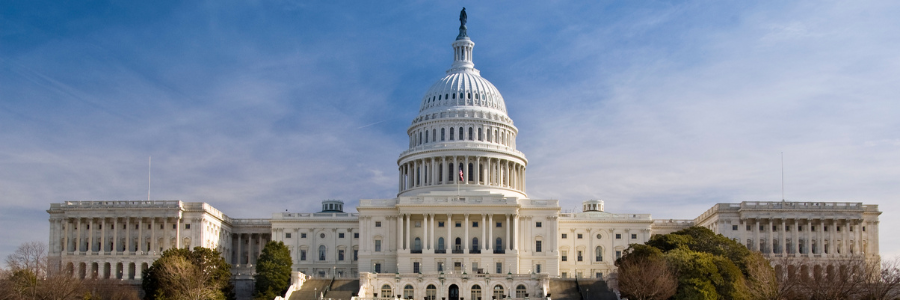Omnibus Spending Package: What It Means for Researchers
Christina Mayer, MPA - December 23, 2022
The omnibus spending package for the 2023 Fiscal Year includes a number of ASGCT-supported provisions that will impact the field of cell and gene therapy. Learn what this means for FDA, NIH, and more.

On Friday, Dec. 23, Congress approved an omnibus spending package for the 2023 Fiscal Year (FY23), which runs through September 30, 2023. The package is referred to as an “Omnibus” spending bill due to its inclusion of all appropriations bills and large number of other bills and policies. ASGCT is encouraged that a number of ASGCT-supported provisions are included.
Advocating for federal research funding is one of ASGCT’s strategic priorities. Our members have been at the forefront of breakthroughs in the field, and many of those research programs were supported by NIH grants. The gene and cell therapy development pipeline is built on a foundation of basic science, and the Society will continue to support robust funding opportunities as the field grows.
Earlier this month, ASGCT had joined other leading healthcare organizations in a letter asking Congressional leadership to complete the FY23 appropriations process promptly, and the Society is pleased that they have now done so. The bill includes robustly increased funding for research and regulatory agencies:
In addition to setting funding levels for FY23, the omnibus bill incorporated several proposals that are significant for cell and gene therapy researchers and product sponsors. Known as “policy riders,” these pieces of the Omnibus often incorporate bills that were previously introduced. For ASGCT members, the most relevant provisions include:
Reforms to the Accelerated Approval Pathway
Sponsors may be required to begin their confirmatory trial before approval is granted, though FDA will have discretion on when to impose that requirement. FDA will be required to specify conditions for post-approval studies no later than the date of approval. The process to withdraw an accelerated approval product is also streamlined. Finally, the bill avoids stricter labeling requirements proposed in previous bills for accelerated approval products compared to those approved on the standard pathway.
Efforts to Improve Clinical Trial Diversity
The Omnibus requires that sponsors submit diversity plans alongside their Phase III (or pivotal) study design, though FDA has authority to waive the new requirement where appropriate (for example, if the target disease population is very small or known to be homogenous). FDA will be required to finalize the clinical trial diversity draft guidance they published in April this year, as well as update/reissue several additional guidances to provide greater direction on the use of digital health tools and decentralized trial designs to drive diverse enrollment. Finally, FDA is required to hold several public meetings. Provisions in this part of the bill were pulled from several of the bills ASGCT had been tracking, including the DEPICT Act and DIVERSE Trials Act.
Creation of a Platform Technology Designation Program
This provision defines a “platform” technology and allows those who are granted the designation to get additional assistance from FDA, similar to what’s available for Breakthrough Therapies. Platform technologies have the potential to streamline gene and cell therapy development by allowing a single technology, such as a nucleic acid sequence or a vector, to be utilized across multiple products. Once a product using a designated platform is approved, follow-on products will now be explicitly permitted to reference data from the previous application, and manufacturing changes to the platform can be done in a single supplemental application for all drugs on such platform. FDA is required to issue a guidance on implementing the designation within a year.
Creation of an Advanced Manufacturing Program
This provision creates a new review pathway for advanced manufacturing technologies independent of product review. Gene and cell therapy manufacturing technologies need to make efficiency and capacity improvements as more products receive FDA approval, so that real-world patient demand can be met. This pathway will help those advances become a reality. Importantly, as ASGCT advocated in comments on the PREVENT Pandemics Act last year, the program will allow a technology to be “designated” before it is included as part of a drug application, de-risking the adoption of these technologies.
In 2023, the FDA, NIH, and other agencies will be busy enacting these various provisions and complying with a plethora of statutory deadlines. As those efforts proceed, ASGCT will continue to educate federal decisionmakers about the crucial role they play in supporting gene and cell therapy.
Christina Mayer, MPA, is ASGCT's Senior Manager of Government Affairs.
Related Articles